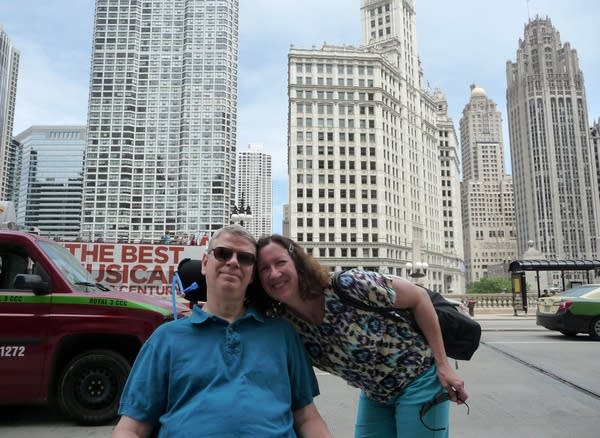A friend's ALS death in the circle of life

Bruce Kramer and his wife, Ev, in Chicago in the summer of 2013.
Photo courtesy Bruce Kramer
Go Deeper.
Create an account or log in to save stories.
Like this?
Thanks for liking this story! We have added it to a list of your favorite stories.


